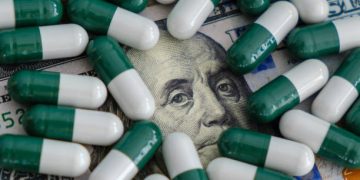Singapore’s pharmaceutical sector is seeking clarity on whether local firms may qualify for exemptions from new U.S. tariffs, Deputy Prime Minister and Trade Minister Gan Kim Yong said on Saturday.
Singapore exports about S$4 billion ($3.1 billion) worth of pharmaceutical products to the United States each year, most of which are branded drugs, Gan noted. Pharmaceuticals currently make up around 13% of Singapore’s total exports to the U.S.
The concerns follow a U.S. announcement of 100% duties on branded drug imports, with potential exemptions for companies that establish or expand manufacturing operations in the United States. Gan explained that several pharmaceutical firms in Singapore already have plans to expand their U.S. footprint, which could support exemption requests.
Gan also said trade discussions with Washington are continuing, following his meeting with U.S. Commerce Secretary Howard Lutnick in August. These talks are focused on pharmaceuticals and semiconductors, two industries that play a central role in Singapore’s trade relationship with the U.S.
“Ultimately, we hope to have an arrangement with the U.S. that keeps our companies competitive and allows them to maintain access to the American market,” Gan said. “Negotiations will determine whether tariffs settle at 15% or another rate, but our goal is to secure more favorable treatment than the current top-line tariff.”
Despite a free trade agreement in place since 2004, Singapore’s exports to the U.S. remain subject to a 10% baseline tariff. The overall effective tariff rate on Singapore’s exports rose to 7.8% in July, up from 6.8% in April, partly due to tariff increases on steel and aluminum.
Singapore’s central bank has previously noted that pharmaceuticals, semiconductors, and consumer electronics make up about 40% of exports to the U.S., leaving them particularly exposed to shifts in American trade policy.
($1 = 1.2910 Singapore dollars)
#TradePolicy #PharmaExports #USAsiaRelations #TariffsAndDuties #SupplyChainNews















